How to research: One idea to rule them all

Conducting excellent research all comes down to one thing: an original idea. But how do you go about getting a truly unique research idea? Two CBS researchers have developed a model that should make it easier to take ideas from mediocre to great. Also, the researchers argue why getting a good idea is no trickier today than when Einstein and Isaac Newton were around.
Ideas. They are curious things. Coming up with an idea for how to spice up your vegetarian lasagna may be easy but coming up with an idea that leads to a Nobel Prize in economics is something entirely else.
And then again. Getting an idea that could revolutionize cancer treatment may as well appear in the shower, whereas a simple idea for solving a problem may be days and months underway.
Researchers around the world are working on getting new ideas every day. Ideas for research projects that can expand our knowledge horizon and take us forward. Florian Kock, Associate Professor at the Department of Marketing, and Adam Lindgreen, Professor and Head of the same department at CBS, do just that. And they have just come up with an idea that can help other researchers – especially young ones – to have even better research ideas.
“The number one problem that researchers face is that everyone, especially scientific journals, calls for original research, but no one says or explains how to get the ideas that can lead to original research. That’s the problem,” says Florian Kock.
He is the ideas man behind the editorial ‘How to Develop Original, Courageous Ideas in Business Marketing Research’ written together with Adam Lindgreen and C. Anthony Di Benedetto from the Fox School of Business at Temple University in Philadelphia, U.S.A.
The editorial, published in Industrial Marketing Management, comes with a step-by-step model – the OBC model – that guides researchers through an ideation process that should ultimately lead them to ideas with the potential to go all the way to the journals, the two CBS researchers claim.
“I reflected on how I develop ideas. I reviewed the articles I have published and the ones that I didn’t publish. And I also looked at articles written by other researchers that have impressed me. I wanted to understand how others come up with great ideas. But they don’t tell you, so I dived into these articles and reflected on my own research,” says Florian Kock and continues:
“That’s how I came up with the three elements of the OBC model. I realized that the ideation process should be structured, and that’s why the OBC model is a good place to start. Observe, Bridge and Challenge.”
Adam Lindgreen is co-editor of the journal where the editorial has been published, and he agrees that getting good ideas is not easy – but having a lot of experience and being an established researcher certainly helps.
“When you know the literature in your field, it can be easier to know a good idea from a bad one. That isn’t necessarily the case for new researchers. I believe the model can help them see what to look for when starting an ideation process. The model almost works as a map that, together with a lot of reading and discussions with others, can sort out the ideas,” he says.
What is new about this idea?
The internet is bursting with guides, TED Talks, YouTube videos and books about how to be more creative and get good ideas. So how will this editorial bring anything new to this area?
“Within academia, I haven’t seen anything like what we’ve done. The other stuff you find is often very woolly and not particularly useful for researchers. This editorial gives you concrete examples of how to use this model in a research context,” says Adam Lindgreen.
He explains that the publisher Elsevier welcomed the editorial, and the journal has asked the two researchers to write follow-up blog posts and also host workshops.
Moreover, Florian Kock and Adam Lindgreen argue that the model can be the beginning of the end of a “dangerous” way of getting research ideas called ‘gap spotting’.
Gap spotting is when researchers read study after study and find the one thing that is still missing. A small problem or a missing link that could be researched further.
“If you digest research only from your own discipline, how can you think differently? It’s simply not enough if you want to generate great ideas. It directs researchers’ attention toward making a paper that ‘fits’ into existing research, thus complying with everything that has been done so far. Not our own claim only, but pretty established view in management research,” says Florian Kock and continues:
“However, people who criticize gap spotting don’t tell us what to do instead. There are a few articles about this, but they are remarkably silent about how the problem of gap spotting can be solved. And that’s what we are trying to do.”
Adam Lindgreen argues that when researchers start inspecting their ideas in more detail, discussing them, asking questions about them and talking about them, it will be even easier to sell them.
“In the end, you’ll end up with ideas that are much easier to also explain to lay people, I believe,” he says.
Florian Kock adds:
“The ‘Observe’ strategy can also be referred to as the grandmother paradigm, and something researchers really struggle with – explaining what their research is about and what the purpose is. You never run into this problem if you find a real problem in the world, and you won’t have an issue arguing why it’s relevant either, and that’s different from starting within your discipline and finding gaps,” he says and continues:
“Yes, finding gaps is more convenient, but good ideas appear when you leave your comfort zone.”
Great discoveries still await
Sometimes, it can feel as if all the great discoveries have already been made, and that it must be far more difficult to discover something truly unique and new.
We know that the Earth has a dense core, we know how to explain gravity waves, we have the internet connecting us, and we can even make microscopic edits in genes. What more is there to discover?
Adam Lindgreen argues that finding good ideas today is no harder than it was 100, 200, or 2,000 years ago.
“If we go back to the ancient Greeks, imagine how daunting it must have been to discover something, but not know what it meant. There was a lot they didn’t understand at that time. And that’s the thing, as we understand more and more, we also have more tools to work with. Of course, if you only focus on one thing, it’s hard, but if you allow yourself to follow this model, I wouldn’t say it’s more difficult,” he says.
Florian Kock understands that researchers feel intimidated by some of the very successful researchers, such as Einstein or Newton, but really they should not.
“In the 1920s, Einstein and other colleagues from the quantum mechanics field made so many discoveries within a very short space of time, that it can feel like you can’t achieve anything. As researchers, it’s easy to reach that point, but then it’s up to you to challenge the status quo. And what we see is that great ideas come from joining forces. That’s when new ideas are developed. So as long as we follow this way of developing new ideas, we won’t run out of great ideas,” says Florian Kock.
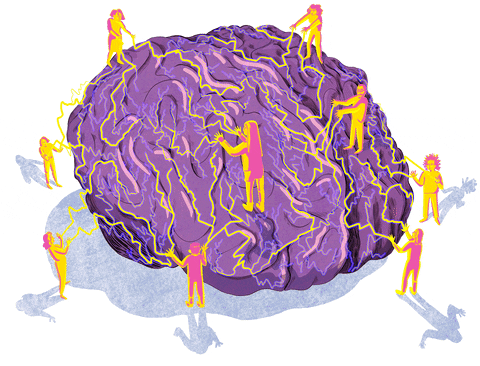



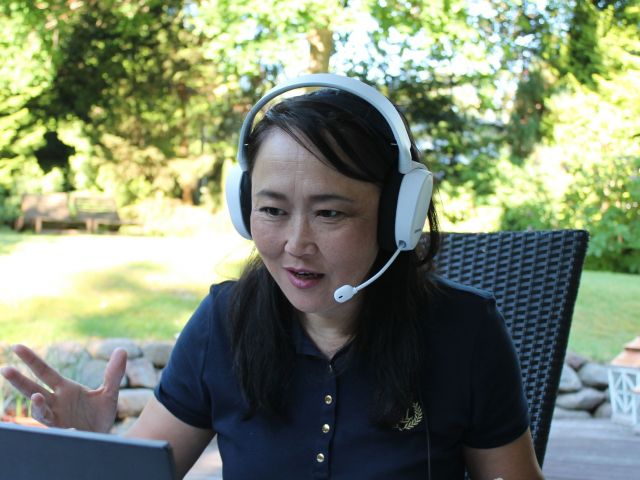
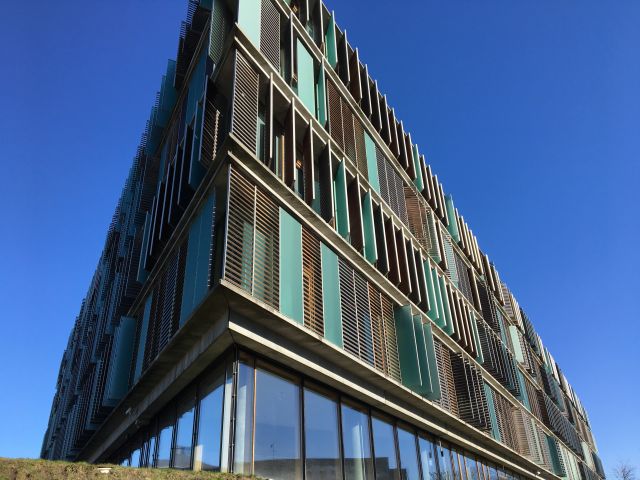


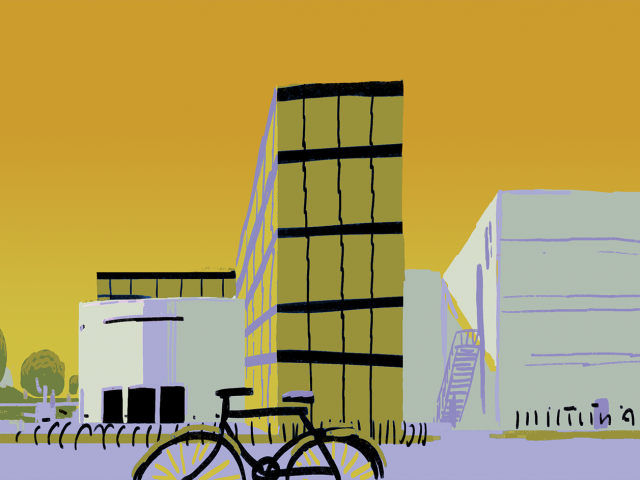
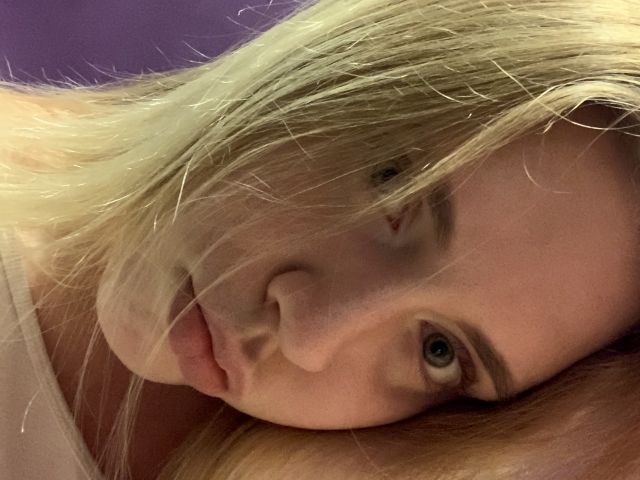





























































































































Comments